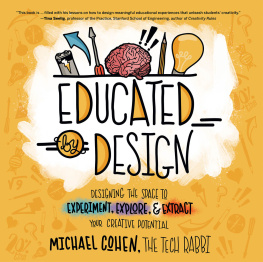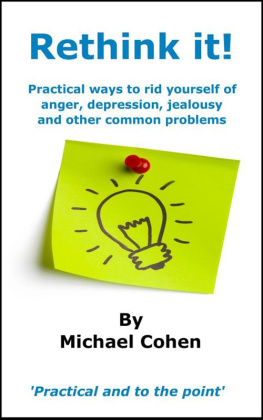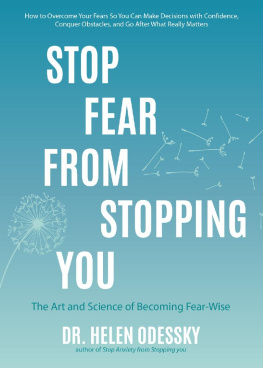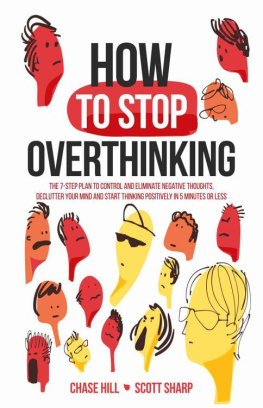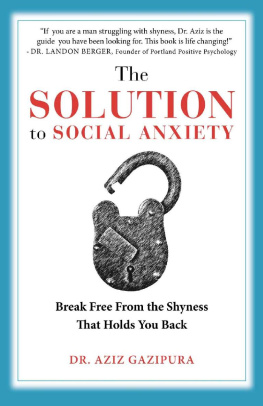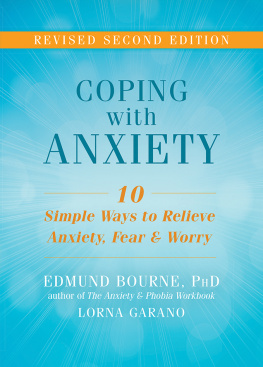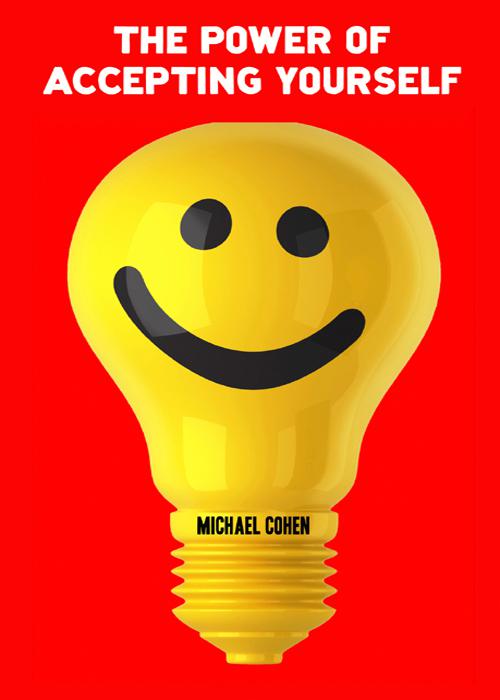The Power of Accepting Yourself
By
Michael Cohen
Bookline & Thinker Ltd
Bookline & Thinker Ltd
#231, 405 Kings Road
London SW10 0BB
Tel: 0845 116 1476
www.booklinethinker.com
All rights reserved. No part of this book may be reproduced
or stored in an information retrieval system (other than for the
purposes of review) without the express permission of the
publisher in writing.
The right of Michael Cohen to be identified as the author of this work has been asserted in accordance with the Copyright, Designs and Patents Act 1988.
Copyright 2010 Michael Cohen
The authors moral rights have been asserted.
A CIP catalogue for this book is available from the British
Library.
ISBN: 9780956517777
Cover design by Donald McColl
Printed and bound by Lightning Source UK
To the Memory of Paula Strawbridge
Important Notice
This book is designed to provide information in regard to the subject matter covered. It is not intended to be a substitute for medical or psychological advice or treatment. It is sold with the understanding that the publisher and author are not engaged in rendering psychological, financial, legal or other services. Any person with a condition requiring medical or psychological attention should consult a qualified medical practitioner or suitable therapist.
All client names and cases mentioned have been disguised to protect their privacy and confidentiality.
Table of Contents
Finding Happiness Through Self-Acceptance
My one regret in life is that I am not someone else.
Woody Allen
Do you make assessments of your worth based on such things as how well you perform at work? Or perhaps you consider yourself worthwhile because you have loving relationships with family and friends? Do you measure your value based on your wealth and fame? Or perhaps your acceptability is based on how others judge you.
Bookshops are packed with a plethora of self-help books each recommending that we build up our own sense of self-worth, recognise our inner strengths and focus on our accomplishments.
At first this might seem like good advice. After all, to value oneself is worthwhile and helps people to prosper. Are we not constantly being told that in order to be happy we need high self-esteem?
To esteem yourself means to rate yourself. A persons self-esteem will seem to be high when he is performing well and feeling competent. However, it is all too easy for self-esteem to plummet when a person falls short of his goal, is rejected by a potential partner or feels unworthy when not living up to expectations.
This is how self-esteem becomes conditional and brief, leading people to feel good one minute while condemning themselves the next.
For example, when you achieve success, you may think to yourself: I am a good person, and when you face a setback you say: I failed, and I am a bad person. We also base self-esteem on how others react to us.
So when you win the approval of significant people in your life, your self-esteem is high and when they reject you it is low.
It is natural to feel good when you perform well. For example, let us suppose that a salesperson gives an excellent presentation to a group of potential buyers. His boss not only congratulates him for closing a lucrative deal but also rates his presentation as one of the most effective he has ever seen.
The salesman feels this makes him a highly capable person and superior to his colleagues. He believes he has earned his high worth and feels good; the better he performs, the better he feels and the higher his self-esteem. The problem with this approach is that our salesman will eventually run into trouble because all people fail at their work some of the time, and our salesman is no exception. As the legendary psychologist Albert Ellis noted: When you succeed in getting what you want, you say, that is good. Great! But you also rate yourself and say, I am a good person for succeeding! When you fail to achieve your goals, you say, that is bad and I am bad.'
According to Ellis, self-esteem is probably the greatest emotional disturbance known to the human race.
So if you make your worth as a person depend on your achievements, your feelings of self-worth will be temporary. Measuring your self-worth in this way will frequently lead to depression and self-loathing whenever you fail to live up to your goals.
In my previous example, the salesperson felt good because his boss congratulated him on giving one of the most effective sales presentations he had ever seen. Winning the approval of his boss can be seen as a good thing nothing wrong with that; the problem arises when the salesman concludes that because his boss thinks well of him that makes him a good and worthy person. He ties up his worth as a person with his bosss opinion of him.
The following month our salesman gives another sales presentation that fails to secure a deal. This time his boss is very critical, stating that the lack of a sale was primarily due to his inadequate performance.
The salesmans feelings of self-worth plummet. Before even taking the time to think about his bosss opinion, he concludes that because his presentation was inadequate he is inadequate. So our salesman confuses an inadequate performance with being an inadequate person.
Other examples of this confusion include equating making a mistake with being a mistake; having a failure with being a failure; and doing something that is bad with being a bad person.
This denigration of the self is wrong and a prescription for further failure. If people define themselves as a total failure then they minimise their chances for success in the future. The salesman told himself that he was inadequate as a person for giving an inadequate presentation. But how could an inadequate person have ever given a presentation that was adequate let alone excellent?
The more people put themselves down, the less likely they are to perform well because they are quite literally prescribing failure for themselves.
How Samantha began to accept herself
A few years ago, a client consulted me with a view to raising her self-esteem. Samantha was due to attend an old school-friends wedding. She knew that a lot of her old classmates would be there and this was causing her considerable anxiety. Samantha explained that she had been bullied by some of these classmates. She suffered from dyslexia and had considerable difficulty with her reading and writing. This had set her back and she had been placed in a class with students two years below her age. Consequently, these classmates had labelled her the school dunce and she had felt like one. It had been a struggle, and Samantha took many years to build up her self-esteem.
This articulate and intelligent 39-year-old woman was scared that a meeting with old classmates would bring back these feelings of inadequacy. She thought it unlikely she would again be called a dunce, but would the inference be there? Just the thought of a conversation with them sent waves of anxiety through her body.
I asked Samantha what specifically it was about the reunion that was causing her anxiety.
Samantha worried that her classmates would bring up the subject of their school days. What if they start talking about the difficulties I had at school? What if they get drunk and start calling me a dunce again? I couldnt stand that.
I asked Samantha whose idea it was that she was a dunce?



